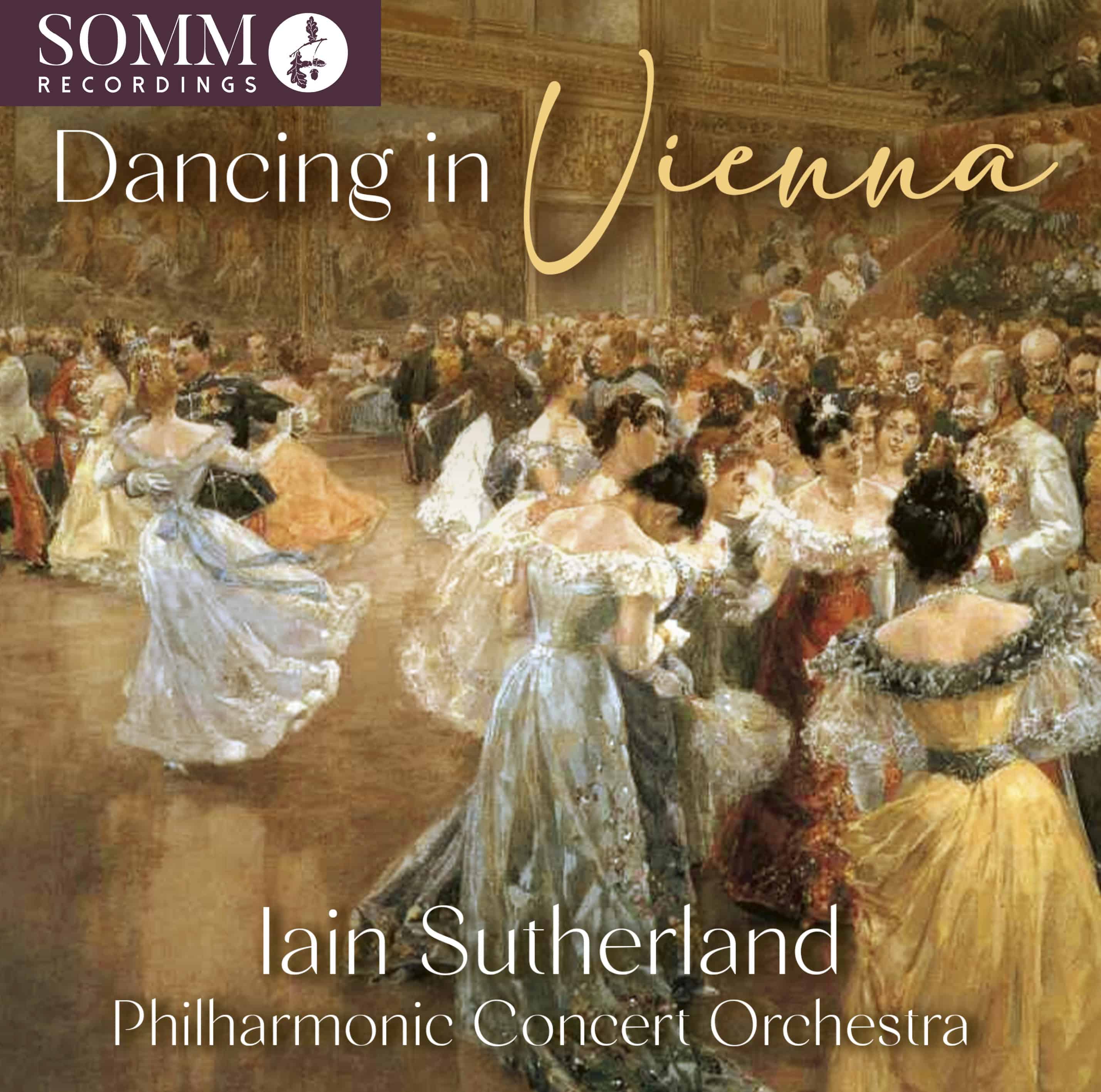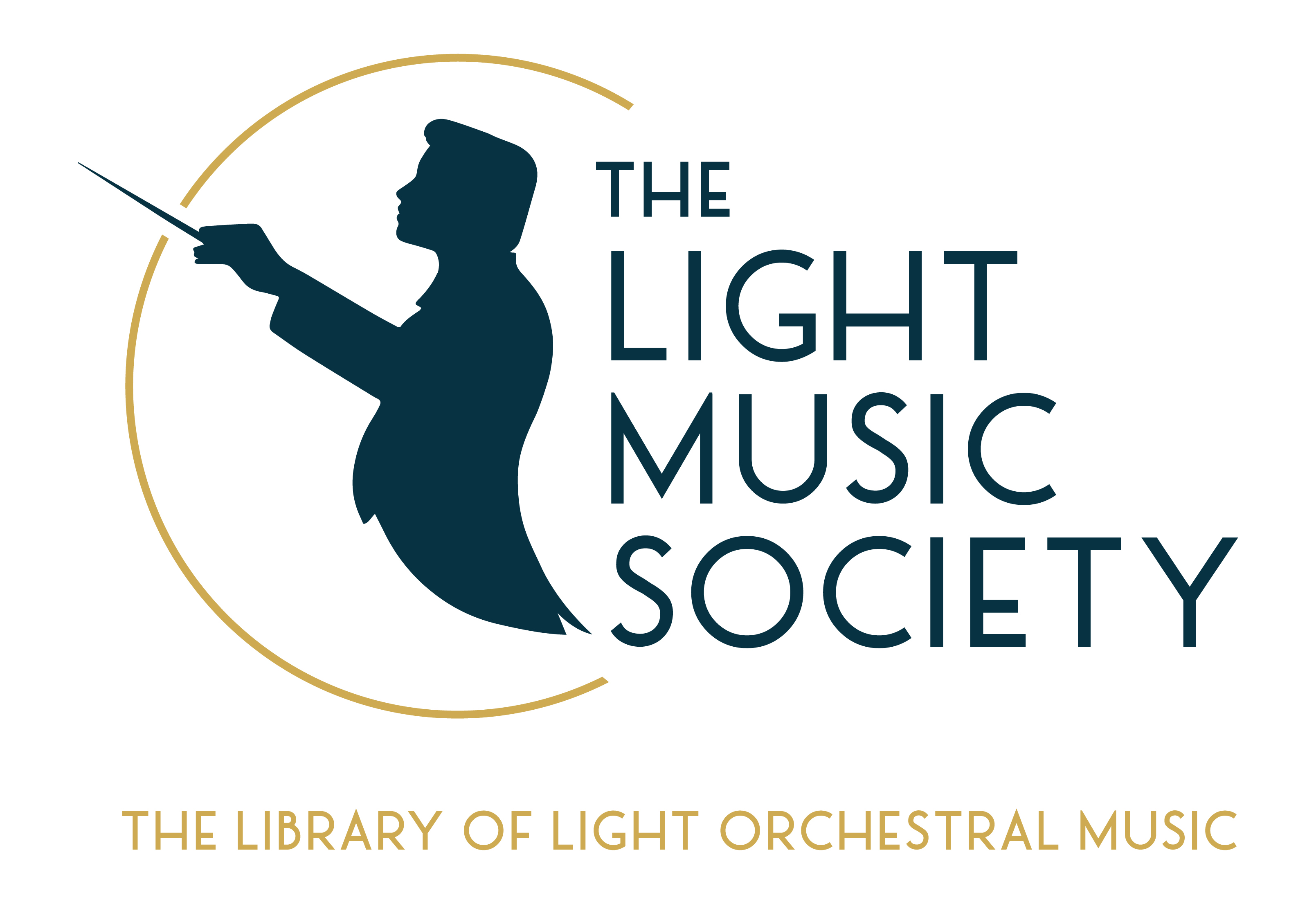Iain Sutherland
Phimharmonic Concert Orchestra
SOMM records
There really is nothing quite like the giddy joy of Viennese fin-de-siècle dance music! SOMM records’ latest release from the acclaimed Iain Sutherland and the Philharmonic Concert Orchestra proves to be a truly delectable box of treats from an age in which it felt like the party would never end. The dominant force in the field of light music in Vienna for a long time was, of course, the Strauss family and they are indeed well represented on this disc. Some of the numbers included do include a handful of “usual suspects” so to speak and the album is no worse off for it. These include the famed Emperor Waltz, Pizzicato, Tritsch-Tratsch, Thunder and Lightning and Champagne Polkas. All of these are played with all the flair and panache you would expect of the artists on this disc, with the crisp coherence of the string section in the Pizzicato Polka a particular highlight of these.
The works of Josef and Eduard Strauss may not be as well-known as those of the two Johann’s (especially II of course), though I’m sure you will have heard some of their works performed at New Year concerts from the Musikverein. Being a live recording, you can also hear just how well many of these numbers went down with what sounds like a packed house when they were performed. Watch out for the audible laughter on the galloping Clear Track Polka by Eduard Strauss as just such an example.
Naturally, being a live performance, there are also occasions that the audience noise does intrude a little with the odd badly-timed cough in such an awkward moment that no editor could easily remove it. However, there is a kind of “authenticity” to a live recording that forgives such occurrences and makes them a little less sterile than some studio recordings could be. Furthermore, if there’s one kind of programme that really welcomes a live recording, it is this. The liveness does also reveal an instance or two of “just one of those things”— momentary slips that we can all but guarantee never went awry in rehearsals, such as a brief lapse in togetherness between the percussion and the rest of the ensemble during the overture to Die Fledermaus: momentarily noticeable, but forgivable.

Two overtures grace the disc, one arguably better known than the other, but Richard Heuberger’s overture to Die Opernball is always a welcome addition to a programme of Viennese music and, at track 2 on the CD it provides a superb combined curtain raiser with the briefer first track.
One name with which you may not be familiar on this release is that of Robert Stolz, from whom we hear two works: Greetings from Vienna, which opens the disc before the Heuberger, and Viennese Cafe Waltzes. These are works of the later “silver” age of Viennese music, the first a rousing march played with soul-stirring gusto by the orchestra under Sutherland’s baton, while the second combines a sensitive lilting waltz with more lively dances. Both have whetted my appetite to hear more from this composer (you may have heard Greetings from Vienna recently on Classic FM). Interestingly Stolz used a baton that had been bequeathed to him by Franz Lehar, who in turn had inherited it from Johann Strauss II: a literal passing of the baton if ever there was one. Hearing Sutherland’s performances of her late husband’s music, Einzi Stolz wrote to Sutherland with the words “You have a Viennese heart with the golden arm for Viennese music.”. On the evidence of this recording you’d be hard pushed to disagree, and I’d say metaphorically, if not literally, that great baton has been passed once again.
DA

Leave a Comment
I hope you enjoyed this post. If you would like to, please leave a comment below.